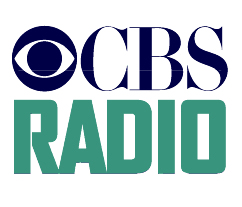10 Media Revelations
1. Social Media are a
dangerous and socially restrictive force
All throughout the world, people are
sending tweets and posting Facebook messages, not noticing as they
are sucked into their own little worlds. Social media are designed to
keep people coming back for ad revenue and chances to make money off
of promotions and publicity, and keep people attached to their
screens at the cost of their real lives, distracting them from
reality and from friends and family. As a result, the public sphere
is weakening around people, as they dive deeper and deeper into
social media not only to get their fix of news or funny pictures, but
also to get away from a world where every time they look up at
someone, they themselves are sucked into their own world as well.
It's boring and depressing being the only person awake and aware.
“The
former mass audience is morphing into individual user who engage with
ever-narrowing politics, hobbies, and entertainment... But what does
it mean for us as individuals with civic obligations to a larger
society if we are tailoring media use and consumption so that we only
engage with Facebook friends who share similar lifestyles, only visit
media sites that affirm our personal interests, or only follow
political blogs that echo our own views?” (Campbell, 5)
“Blogs
have become part of the information and opinion culture of the Web,
giving people and citizen reporters a forum of their ideas and views,
and providing a place for even professional journalists to informally
share ideas before a more formal news story gets published.”
(Campbell, 53)
2. The influence of
advertising companies over business and politics
Advertising and public relations firms
hold an immense sway over the power of businesses to make money and
the ability of politicians to get elected. The art of framing
information in a certain light and revealing only those pieces which
are to your advantage is a powerful thing, and these companies are
more than capable of figuring out just what light to shine on their
clients to turn the worst of murderers and slavers into the most
tragic and misunderstood of heroes.

“In
many industries, government relations has developed into lobbying:
the process of attempting to influence lawmakers to support and vote
for an organization's or industry's best interests.” (Campbell,
436)
“With
practitioners like Lee showing the emerging PR profession how facts
could be interpreted, the journalist's role as a custodian of
accurate information became much more difficult.” (Campbell, 441)
3. We provide free
labor for advertising companies
In ancient Greece, the philosophy of
the day was that a persons value was measured as Kleos-
a term which roughly means “fame” in our language, and which was
the basis of their culture of epic heroes and historical figures
forever sculpted from marble. Today, a similar force is not only
encouraged but also bred and harvested by social media companies, who
convince people to advertise for them, re-tweeting their tweets and
linking their posts in return for the possibility to get a prize or
recognition as the “duped laborer of the week.”
“For
digital media, the creative team may develop... viral marketing-
short videos or other content that (marketers hope) quickly gains
widespread attention a users share it with friends online, or by word
of mouth.” (Campbell, 394)
“One
of Facebook's more recent ad venture is called 'sponsored stories...'
Sponsors and product companies like this service because they save
money since 'no creative work is involved.'” (Campbell, 398)
4. The blacklist in
Hollywood
During the Cold War, the American
government was swayed by a politician known as Joseph McCarthy.
Although the country had already harbored violent anti-Communist
opinions for some time when McCarthy came onto the scene, he himself
made a considerable effort to expand on this all-American brand of
paranoia, writing up lists of people who he believed to be Communist
sympathizers and threats to the United States of America. One of
these lists was the Hollywood Blacklist, which marred the film
industry for many years as it kept all of the names on it from ever
returning to show business.

“Among the changing conditions
facing the film industry were the communist witch-hunts in
Hollywood... and the appearance of home entertainment.” (Campbell,
257)
“For
instance, Jack L. Warner of Warner Brothers suggested that whenever
film writers made fun of the wealthy or America's political system in
their work, or if their movies were sympathetic to 'Indians and the
colored folks,' they were engaging in communist propaganda.”
(Campbell, 257)
5. Real copy books are
dying out
Books have had a special staying power
throughout most of history, providing a quiet and deep alternative to
the blaring new arrivals of radio and television, and continuing to
feed the silent intellectual hunger for thought and stories in our
population. However, with the rise of the quiet and sometimes deep
internet, books have found themselves translating to screens with no
difficulty- the problem of course being that by translating over to
the screen, actual books are dying out, selling less and less and
being relegated to corporate libraries and book stores, where nobody
ever really owns what they've paid for, and are subject to the whims
of the corporation both for whether they can keep the books- and
which ones can even be sold.

http://www.nbcnews.com/tech/gadgets/you-dont-own-your-kindle-books-amazon-reminds-customer-f1C6626211
“By
2012, e-books became the best selling adult-fiction book format in
the United States (in terms of revenue), accounting for 15% of all
books sold.” (Campbell, 362)
“Another
recent trend in the book industry involves the preservation of older
books, especially those from the nineteenth century printed on
acid-based paper, which gradually deteriorates... through digital
imaging.” (Campbell, 363)
6. Newspapers are dying
out
For quite a long time, newspapers have
been teetering on a knifes edge, always seeming like they'll be wiped
from the face of the Earth by the next big thing. However, despite
the rise of radio and television, traditional newspapers held out
fairly well- until now, in the age of the internet, where traditional
newspapers are dying out due to a loss in readership and an apparent
shift in public opinion to consider such institutions as outdated and
obsolete. As a result, newspapers may finally be on their way out,
forced to move onto the internet and deal with the fact that, with a
society no longer willing to pay for subscriptions (or anything at
all, for that matter) to maintain the honesty of the papers, they
will have to either give up on expensive ventures like war coverage,
or embrace the duplicity of internet advertising culture to fund
their efforts.
“Today,
this job has been usurped... Traditional printed newspapers are
struggling as the page turn from a print world to a digital one, and
they have lost both young readers and ad revenue to Internet news
sources.” (Campbell, 277)
“Mainstream
media was slow to cover OWS, with early coverage imply pitting angry
proteters against dismissive Wall Street executives and politicians,
many of whom mentioned the movement's longevity as well as its vague
agenda... As in the Arab uprisings, sites like Tumblr, Facebook, and
Twitter became key organizational tools.” (Campbell, 290)
7. Most radio stations
are consolidated under large corporations
One would think, with their unique and
varied names, titles and sheer numbers, that radio stations are a
bastion of free thinking and amateur media presentation, as they've
been in the past, and especially with radio having already been
replaced by television and the internet- indeed, one would think that
a medium which is till thriving through not one but two
paradigm shifts would be awfully independent, what with its apparent
obsolescence- but no, it is instead owned by large corporations. Very
few, as well, because they are actually making all radio stations
similar and having them play only the most popular songs to make
money as a group, thus helping ensure that those songs continue to be
played in an infinite feedback loop of enforced popularity.

“Today,
there are fifteen thousand radio stations, but... you'll likely hear
the same syndicated Ryan Seacrest program in the mornings or midday,
and the Billy Bush program in the evening.” (Campbell, 157)
“The
consolidation of stations into massive radio groups like Cumulus and
Clear Channel in the 1990's and 2000's resulted in budget-cutting
demand from the corporate offices and, ultimately, stations with less
connection to their local audience.” (Campbell, 156)
8.
The Complexity of the Music Industry
The
music industry isn't as simple as one might think, with musicians
just going out to perform tours and record albums. Instead, the
industry is far more complex, and filled with the issues of a massive
system for organizing and recording music, writing it and advertising
it and making it into brilliant music videos for the masses. It's
such a complex process, that weeks of work performing actual music
can turn into years of effort getting it all into stores.

“For
about a half a century starting in the 1950's, the economics of the
sound recording industry were pretty simple... Then, in 1999, the
music industry was completely caught off guard by the introduction of
Napster, the music file-sharing service.” (Campbell, 121)
“The
US market accounts for about one-third of global sales... the US and
global music business still constitutes a powerful oligopoly: a
business situation in which a few firms control most of an industry's
production and distribution resources.” (Campbell, 142)
9.
The Extent of Whitewashing in the Music Industry of the 40's
One
thing I certainly was not aware of was the fact that “The Lion
Sleeps Tonight” was not actually an anonymous song, at least not in
American pop culture. It was instead originally recorded by Solomon
Linda and his Original Evening Birds, who entitled it “Mbube.”
Solomon Linda, illiterate, sold the copyright to the song for 87
cents, and his wife and children, also illiterate, were made to do
the same many years later, having no understanding of copyright. As a
result, many years, later, the Linda family had to sue for their
royalties, and ultimately received a royalty deal and a tidy sum in
back pay to make up for a hit that had been stolen out from under
them and then transformed by numerous white bands covering it, never
paying mind to the creator.

“Often,
white producers would not only give co-writing credit to white
performers for the tunes they only covered, but they would also buy
the rights to potential hits from black songwriters who seldom saw a
penny in royalties or received songwriting credit.” (Campbell, 133)
“When
Mr. Linda died in 1962, at 53, with the modern equivalent of $22 in
his bank account, his widow had no money for a gravestone.”
(Campbell, 148)
10.
Alternative Voices

Honestly,
I think one of the coolest things to see in this course was the
alternative media movement- whether it was tiny upstart magazines or
advertising that cut through the crap to the dirty, corrupt heart of
an ad campaign, seeing the little guy shine from within the coal cart
is always a beautiful thing. It's especially nice to see because it
really shows how much hope there is left in the world, when someone
can start a counter-ad campaign that can effectively reach out and
contact the people who are most vulnerable to predatory advertising.
“Working
with a coalition of ad agencies, a group of teenage consultants, and
a $300 million budget, the [Legacy Foundation] created a series of
stylish, gritty print and television ads that deconstruct the images
that have long been associated with cigarette ads....” (Campbell,
413)
“In
addition to signing with indies, unsigned artists and bands now build
online communities around their personal Web sites- a key
self-promotional tool- listing shows, news, tours, photos and
downloadable songs.” (Campbell, 150)
No comments:
Post a Comment